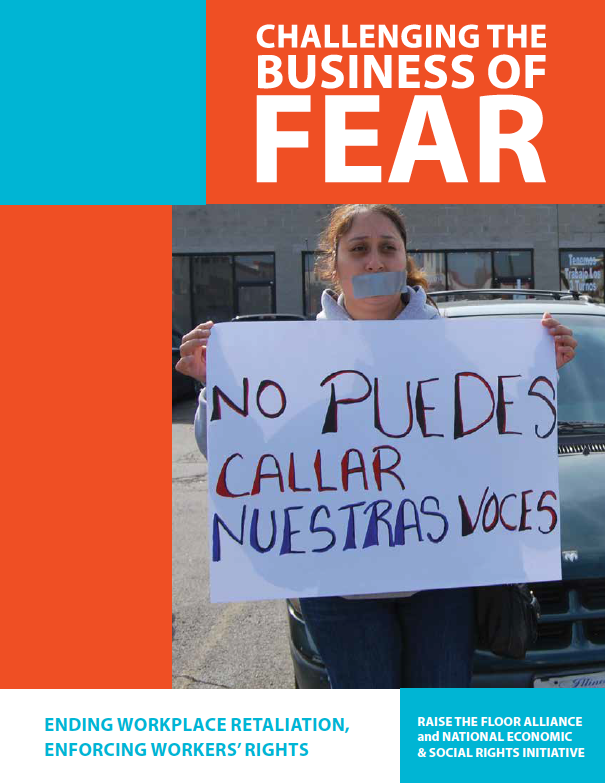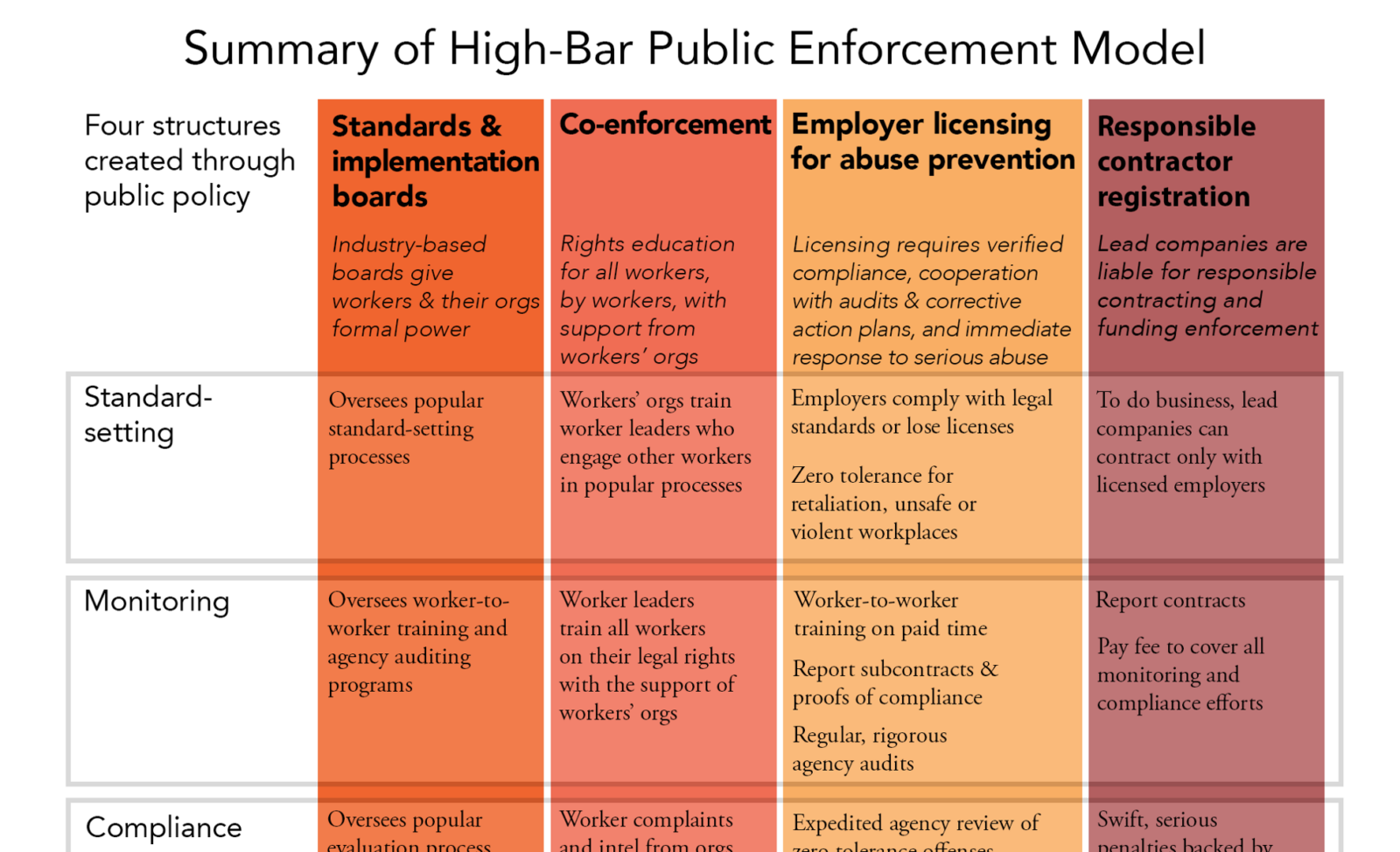
Worker Power Through Public Enforcement
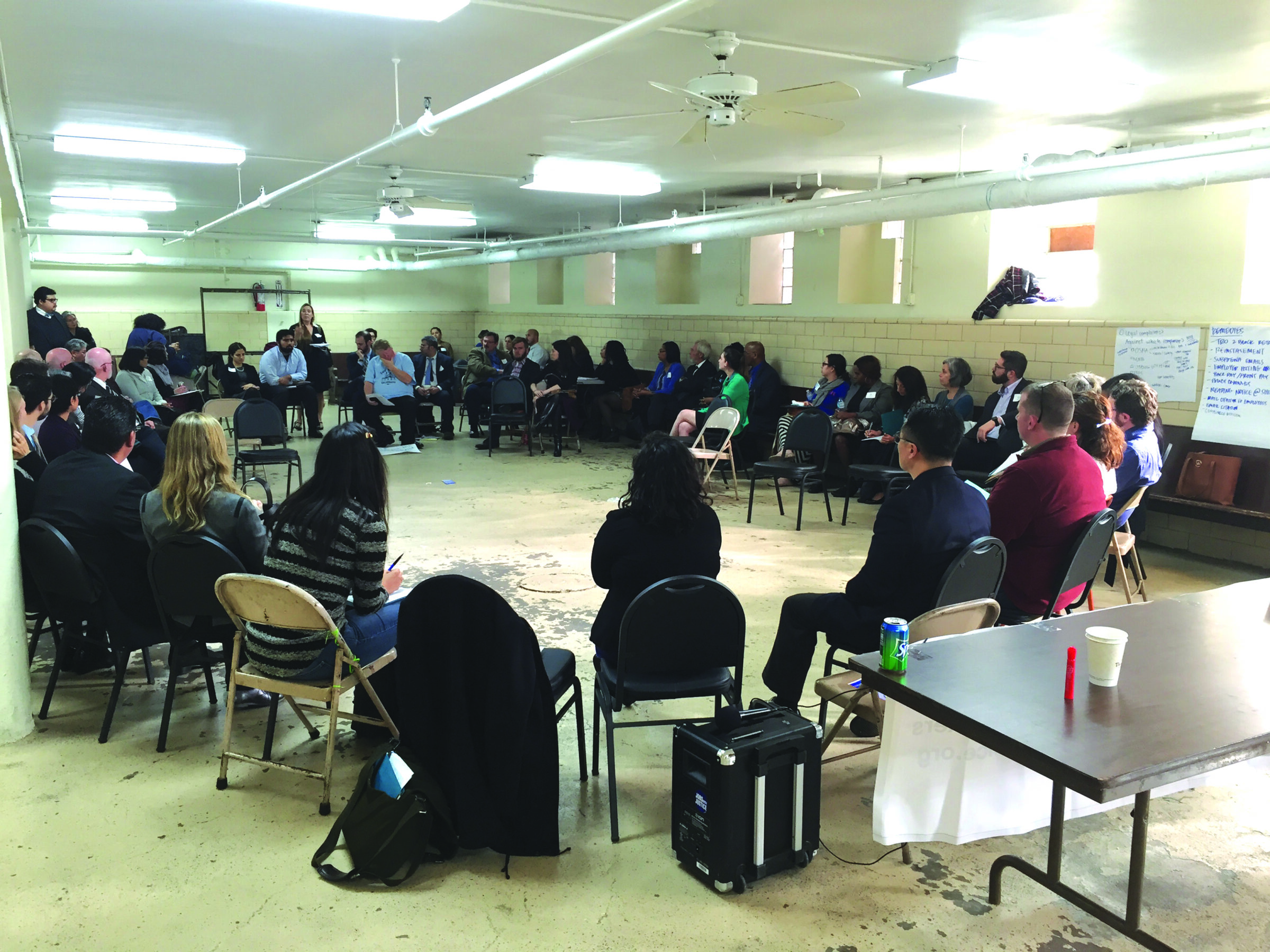
The rules are rigged against workers. Companies spend millions on anti-union tactics. And for immigrants and people of color working to make ends meet, employer retaliation is a constant threat. Discriminatory hiring further sets the stage for the culture of fear in these workplaces that hangs over even the simplest communications with the boss.
In these parts of the labor market that are marked by the most severe power inequities, employers have wielded abusive tactics like these for decades to secure and maintain acceptance of degraded wages and conditions. These tactics have become virtual requirements of market competition – the norms of entire industries.
Effective enforcement of basic rights, especially from illegal retaliation in all its forms, is a critical piece of what we need to build back up a large-scale labor movement. But public enforcement has consistently failed to protect the most vulnerable workers.
The only measurably effective enforcement programs right now are those built out of private agreements. Worker-driven Social Responsibility is a shining example of this, which we have supported since our founding. These hard-fought wins have been secured in legally-binding agreements with brands and retailers at the top of supply chains and subcontracting chains. They deliver reliable protection to tens of thousands of workers at the bottom of these chains.
But there are literally millions more workers who are adversely affected by the lawlessness of our existing labor market without the protective measures created under private agreements. To reach these workers and achieve scale, we need to employ every tool we can to blunt and prevent the illegal retaliation that stymies organizing.
Under the right circumstances, we should be using public policy to craft new tools for building movement and to extend that much-needed baseline of protection to all workers. Worker-based organizations rooted in working class immigrant communities and communities of color have been experimenting toward these ends with local policy. The Worker-Powered Enforcement Project at Partners for Dignity & Rights (P4DR) collaborates with these organizations to build and institutionalize worker power to enforce the right to work with dignity. P4DR supports developing and scaling worker-led models that shift the balance of power between workers and the businesses that create the conditions for their abuse.
Related Resources

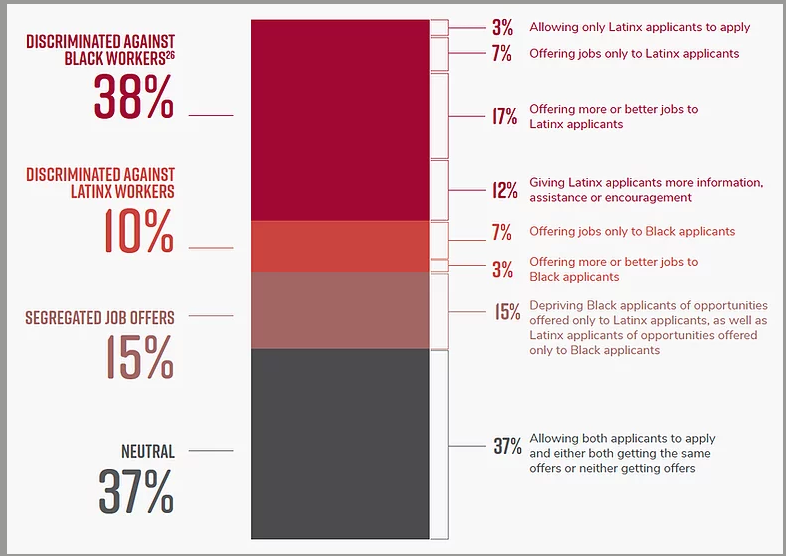
Report: Opening the Door: Ending Racial Discrimination in Industrial Temp Hiring Through Innovative Enforcement
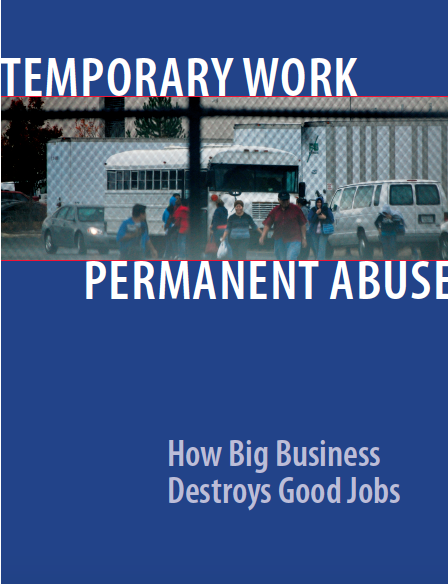
Temporary Work, Permanent Abuse: How Big Business Destroys Good Jobs
